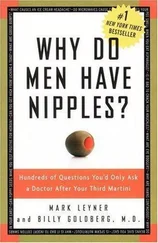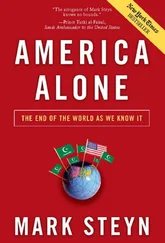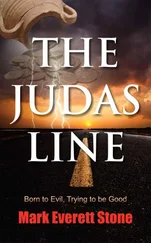The exception to the Smith rule, and something closer to Huntington, is this: for dominant powers, ruin comes by the express lane. Unlike AIG, Fannie Mae, Detroit, and Greece, the United States is big enough to fail, spectacularly—and big enough to drag much of the world down with it.
Most citizens of advanced western democracies haven’t read Gibbon’s Decline and Fall of the Roman Empire , but they figure they get the general idea. The “decline” bit of the title suggests you’ve got a bit of time before you get to the “fall,” and actually, given that he took six volumes and covered a millennium and a half, that may be all the time you need. In fact, once the key elements were in place, the fall was very swift. By the time Odoacer took Rome in 476, the city’s population had fallen by 75 percent in barely half a century—or the equivalent of the Beatles to now. Within a few years, a prototype “globalization” of European commerce had reverted to a subsistence economy of local agriculture.
The question to ask is: What’s holding the joint up? A second- or third-tier nation—Iceland, for example—is generally resting on modest assumptions about its resources and economic outlook. There is a deal of it in a nation, but a superpower relies on subtler stocks, like image and credibility.
If you’re on a train going uphill and you’re out of fuel, you’ll still move forward—for a bit. By the time you notice you’re slowing down, the coal’s already gone. What comes next? You roll backwards, downhill, fast.
It starts with the money. For dominant powers, it always does—from the Roman Empire to the British Empire. “Declinism” is in the air these days, but we full-time apocalyptics are already well past that stage. In the space of one generation, a nation of savers became the world’s largest debtors, and a nation of makers and doers became a cheap service economy.
Everything that can be outsourced has been—manufacturing to by no means friendly nations overseas; and much of what’s left in agriculture and construction to the armies of the “undocumented.” At the lower end, Americans are educated at a higher cost per capita than any nation except Luxembourg in order to do minimal-skill checkout-line jobs about to be rendered obsolete by technology. 32At the upper end, America’s elite goes to school till early middle age in order to be credentialed for pseudo-employment as $350 grand-a-year diversity consultants (Michelle Obama) or in one of the many other make-work schemes deriving from government micro-regulation of virtually every aspect of endeavor.
So we’re not facing “decline.” We’re already in it. What comes next is the “fall”—fast, sudden, off the cliff, if only because the Obama spending binge made what was vague and distant explicit and immediate. America has squandered its supposedly unipolar moment on the world’s most expensive suicide. What is happening to the United States is not “cyclical,” but structural. Like Belshazzar’s Babylon, when you weigh us in the balances, we’re seriously wanting. Under a ruling class comprehensively inept but comfortably insulated, America has been thoroughly unbalanced: thanks largely to distortions driven by government, we have too much college, too much housing, too much financial sector, too much “professional servicing”—accounting, lawyering, and other activities necessary to keep the fine print in compliance with the regulatory state.
All of these are huge obstacles to making productive use of even our non-borrowed money and to keeping America competitive with the rest of the world.
Even in its glory days, the Age of Abundance wasn’t exactly a Belshazzaresque party for most folks: since 1973, the wages of 90 percent of Americans have grown by only 10 percent in real terms, and consumption even of cheap Chinese goods was fueled by borrowing. 33But eventually even that mirage fades and you see the writing on the Wal-Mart.
When government spends on the scale Washington’s got used to, that’s not a spending crisis, it’s a moral one. The Irish have a useful word for the times— flaithiúlacht —which translates to ruinous generosity, invariably with someone else’s money. There’s nothing virtuous about “caring” “compassionate” “progressives” demonstrating how caring and compassionate and progressive they are by spending money yet to be earned by generations yet to be born. That’s what “fiscal conservatives” often miss: this isn’t a green-eye-shade issue. Increasing dependency, disincentivizing self-reliance, absolving the citizenry from responsibility for their actions: the multitrillion-dollar debt catastrophe is not the problem but merely the symptom. It’s not just about balancing the books, but about balancing the most basic impulses of society.
These are structural and, ultimately, moral questions. Credit depends on trust, and trust presupposes responsibility. So, if you have a credit boom in an age that has all but abolished personal responsibility, it’s not hard to figure how it’s going to end.
The U.S. Bureau of the Public Debt (and no, that’s not a satirist’s fancy but an all too real government body) uses as its motto the words of Alexander Hamilton:
The United States debt, foreign and domestic, was the price of liberty. 34
But in the early twenty-first century, foreign and domestic debt piles up to the cost of liberty. As I wrote in America Alone , it’s not the “deficit”: these programs would be wrong if Bill Gates wrote a check to cover them every month. They’re wrong because they represent a transfer from the citizen to the state not of money but of power. And over time, as we see in the urge to expunge words like “default” and “foreclosure” and indeed any form of consequence from life, they have a debilitating effect. A society can cope with corroded infrastructure and a devalued currency more easily than with corroded liberty and a devalued citizenry.
King Belshazzar’s wild party began with an act of desecration: Then they brought the golden vessels that were taken out of the temple of the house of God which was at Jerusalem; and the king, and his princes, his wives, and his concubines, drank in them. They drank wine, and praised the gods of gold, and of silver, of brass, of iron, of wood, and of stone.
Similarly, the statists took the vessels of the American republic and filled them up with Big Government happy juice. The United States joined the rest of a cosseted western world in voting itself a lifestyle it was not willing to pay for.
The bad news is our children will not enjoy the American Dream. The good news is that under the next “stimulus” bill they’ll be eligible to apply for a position as a federally funded American Dream Awareness Assistance Coordination Program Grantwriter. If the political class plus their dependents in the underclass and their cheerleaders in the media and academy have disconnected themselves from the animating principles of the American idea, what then is the point of America? Like President Obama, the progressive elite doesn’t believe in American exceptionalism, yet somehow assumes that the very exceptional peace and prosperity Americans have enjoyed since 1945 are eternal—as permanent a fact of life as the sky and the oceans.
The “bubble” is not the property market or cheap credit. The bubble is twenty-first-century America itself, from the financial sector to a wretched education system culminating in languorous, undemanding “college” courses whose absurd soaraway prices were affected not a jot by the economic downturn. When you weigh America in the balances, it’s not just wanting, it’s wanting a sugar daddy—urgently: if Europe’s somewhat agreeable post-war decline was cushioned by America, who’s volunteering to do the cushioning for America?
Читать дальше











